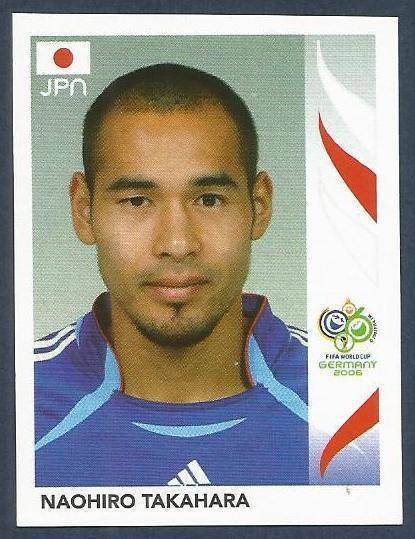
Let's start with the next round of my series about Japanese football players who made it into the Bundesliga. I started this series with Yasuhiko Okudera, the very first Japanese to make it as a professional player into a foreign league.
After his departure from the Bundesliga in 1986, things became quiet in Germany as far as players from the Land of the Rising Sun were concerned. It took over 15 years for the next Japanese player to be signed to a Bundesliga club again.
More precisely until January 2003, when the then 23-year-old Naohiro Takahara was signed by the Hamburger Sportverein HSV for a transfer fee of 200,000 Euros. At that time, HSV was still playing at the very top and was one of the best teams in the German Bundesliga. Times are changing huh?
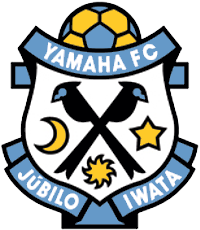
Takahara began his professional career in Japan in 1998 at Jubilo Iwata, for whom he played for a total of 5 years.
But his first stop abroad wasn't HSV, for half a season he was temporarily on loan to the Boca Juniors in Buenero Aires. There, however, he only played 6 games and scored only one goal.
He returned to Iwata early for financial reasons, and became top scorer and footballer of the year in Japan with 26 goals in the following season 2006.
A new era beginns
With this reputatio backing him, HSV decided to hire the Japanese international during the 2002-2003 winter break, ushering in a new era of Japanese footballers in the German football upper house.
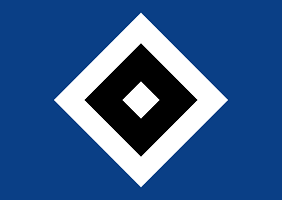
Takahara played for HSV for a total of 3 years and scored 13 goals in 97 league matches. Especially in his early days for the North German club, he soon made it into the focus of Japanese sports coverage. Dozens of journalists from the Far East came to the training sessions of his new club to report about the new star of Japanese football.
Even though Takahara could not completely fulfil the expectations placed in him, he quickly became the favourite of the audience in Hamburg's Volkspark Stadium. With his nice, honest manner he gained many sympathies, and his never-ending commitment helped him to get his nickname. The fans of the Bundesliga club named him "Sushi Bomber" to express their respect and thanks for his achievements in their very own way.
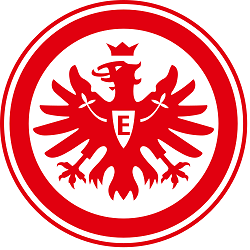
In May 2016, Takahara finally moved to the league rival Eintracht Frankfurt, where he signed another 3-year contract, but he already returned to the Urawa Reds in Japan in January 2018 after a very disappointing first round in his last season. But in Frankfurt too he left a lasting impression and after a strong 2016-2017 season he again became one of the crowd's favourites.
In his more than 100 Bundesliga matches, Takahara scored only 25 goals, and he had a reputation for leaving out the best opportunities to score the easiest goals. However, this did not diminish his popularity, until his respective departure the fan camps of both his German teams treated him like a champion.
And myself too, even after his departure from Hamburg I was still cheering for him, when he now was scoring for the opponent team Eintracht Frankfurt..
A very pleasant person!
Coming home
After his return to Japan Takahara played for Urawa Reds for some time before he went abroad again. This time not quite so far, only to the neighbouring country South Korea, where he played half a year for Suwon Bluewings, only to return to his homeland afterwards. He then played for three other clubs until he founded Okinawa SV in 2016, where he now is a striker, president and coach.

In the long run he wants to establish his new team at the top, the first year in the lowest Japanese league has already been very successful. Nine victories in nine games with a goal ratio of 123 : 1. The name appendix SV means "Sportverein" in the German language and is a tribute to his old club the Hamburger Sportverein or short HSV.
Among his greatest successes are the titles of "Footballer of the Year" and "Top Scorer" in the J-League in 2002, as well as winning the Asian Championship in 2004 with the Japanese national team.
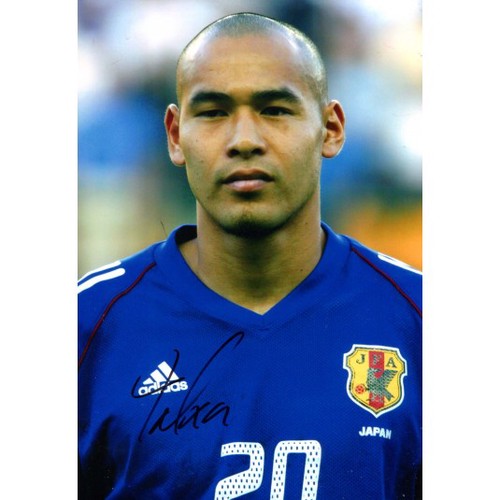
Another highlight of his career must have been May 30, 2006, when he scored two goals in an international match against the German national team and reached a more than respectable 2:2 draw with the Japanese team in Leverkusen.
Unfortunately, he didn't really made it to the top in during his time in the German Bundesliga, but he left a long lasting impression with both of his clubs, in Hamburg and in Frankfurt.
And his honest and unselfish way of playing football won him many friends and opened the door to the European leagues for the following players from the Land of the Rising Sun.
A football player who didn't mind to go unconventional ways, which we can see from his different stations abroad and also nationally.
I personally can only keep my fingers crossed for him and wish him a great and successful future for his further time at Okinawa SV.
ありがとうございます。Arigatou gozaimusu!
and
Comments